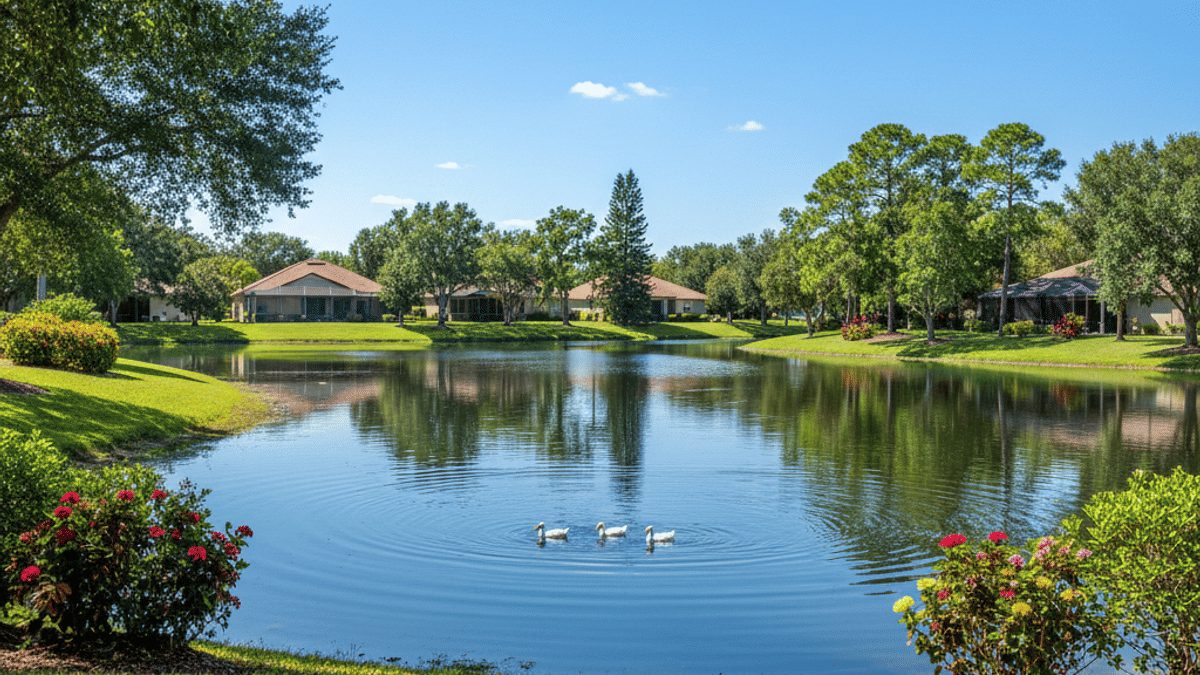Local money on the table
Orlando keeps a surprisingly low profile about its assistance programs. The city publishes PDFs, the county updates spreadsheets, but hardly anyone strings the info together in plain English. Let’s fix that.
- City of Orlando Down Payment Assistance Program.
Up to $35,000, forgivable after ten years. Funds land at the closing table, not weeks later. The program refilled its budget in March 2024 and planners say they expect a 12 percent bump in funding for 2025. Translation: more slots. - Orange County Purchase Assistance.
Up to $45,000 if the home sits within county limits but outside city boundaries. The county quietly shortened its application-review window to 21 days. That matters. Slow approvals kill deals faster than high rates. - Hometown Heroes, statewide.
Teachers, first-responders, health-care pros—this pool just widened to include grocery workers and hospitality staff. That new group covers roughly 18,000 wage earners in the metro. Maximum benefit is 5 percent of the loan amount, capped at $35,000. - Florida Assist second mortgage.
Zero-interest, no monthly payment, due at payoff or refinance. They bumped the cap from $7,500 to $10,000. Pair it with the Hometown Heroes grant and closing costs can nearly disappear.
Eligibility myths still fly around. Credit score needs to be “good,” yet buyers closed this summer with 620. Income limits? They hover near 140 percent of area median, higher than many realize. The sneaky rule is occupancy: you need to move in within 60 days, no delays. Miss that and payback kicks in.
A quick 2023 stat: 1,912 Orlando-area buyers tapped at least one of these buckets. Only 511 exhausted the maximum. So yes, money was left unclaimed. Do not be the next person who funds the city’s surplus by accident.
Street smarts the blogs forget to mention
You already know the basics. Get pre-approved, hire an agent, yada yada. Let’s move past that.
- Turn listing photos into data.
Screenshot a kitchen, drop it into a reverse-image search, and uncover prior listings. You’ll see if the seller merely slapped on new paint or undertook real work. Bonus tip: check how long it sat last time around. Long gaps hint at hidden issues. - Search utility permits, not just comps.
Orlando’s digital permitting portal shows when a roof or HVAC appeared. A fresh roof adds more value than granite counters yet rarely shows up in the MLS remarks. Spot a two-year-old permit and you just found leverage when you structure your offer. - Whisper networks still rule.
The local Young Professionals Real Estate Council meets every second Thursday. Agents swap pocket listings over tacos. Buyers who tag along as a plus-one get access to homes a week early. Yes, your attendance can beat Zillow’s algorithm. - Forget “highest and best.” Think “clean and certain.”
Sellers fear surprises. Use a short inspection window, a flexible closing date, and let them leave whatever junk they don’t want. Those three lines in your offer sometimes trump an extra 10K in price. - Inspect the neighborhood at 10 p.m.
Orlando’s tourist traffic dies down, but local traffic noise rises. Drive the block after dark, windows down. You’ll find the barking dogs or the street that doubles as a speedway. No online review will warn you. - Ask for a wind-mitigation report upfront.
Insurance premiums went up 22 percent in 2024. A positive wind-mit can drop that by fifty bucks a month. Sellers who already have the report in hand give you a clearer payment picture before you lock a rate.
Try these, then tell me if you still believe the market is impossible to crack. It isn’t. It just rewards the prepared over the casual browser.
What 2025 is doing to prices and patience
Hard numbers first. The Orlando Regional REALTOR® Association logged a median resale price of $387,400 in November 2024. Forecast models from UCF’s Institute for Economic Forecasting point to a 4.1 percent uptick by Q4 2025. Steady, not explosive.
Days on market tell a juicier story.
Pre-pandemic: 51 days.
2022 frenzy: 14.
Summer 2024: 27.
Economists peg 2025 at 32. Buyers will breathe a bit, though desirable zip codes like 32803 still sell in a weekend.
Inventory stands at 2.5 months. No one calls that balanced, yet builders are catching up. Permits spiked 19 percent last year and a chunk arrive as townhomes under $400K, the sweet spot for first timers.
Interest rates? Mortgage analysts expect a ceiling of 6.6 percent and a floor near 5.9. That narrow band means payments calm down but never hit 2020 fantasy levels. Good news is predictable budgeting.
Tourism matters more than Mickey Mouse selfies. Visitor numbers dictate short-term-rental profitability which in turn affects investor appetite. Visit Orlando projects 80 million visitors in 2025, still below 2019. Fewer investors equal fewer cash wars on starter homes. First-timers, that is your opening.
Property taxes carry an overlooked twist. Homestead exemption caps annual assessment growth at 3 percent, but non-homesteaded landlords face 10 percent. Owners planning to occupy dodge the bigger hike, another subtle edge over investor bids.
Net migration remains positive yet is shifting east along the 417 corridor. New SunRail expansions plus a Brightline spur whisper of future appreciation in outlying pockets like Meadow Woods. Buy there and you might ride the infrastructure wave while staying below median price.
Bottom line. 2025 looks calmer. No crash, no rocket ride, just a slow churn favoring the patient.
Who’s actually buying right now
The data people rarely leak these nuggets, yet the raw numbers shape your competition.
- Average first-time buyer age in metro Orlando hit 35.6 last year. Ten years ago it sat at 31. Why? Student-loan payoffs drag longer and renters chase experience spending. That delay means many enter with higher incomes and fatter down payments.
- One in five first-timers now works fully remote. They value fiber-optic connectivity over commute distance. Neighborhoods near the Lake Nona Verizon 5G Ultra-Wideband pilot saw inquiry volumes climb 27 percent in six months. Tech workplace perks intersected with real-estate demand in real time.
- Couples without children accounted for 48 percent of local first-time purchases. They average 1.5 bedrooms more than they need. Translation: office plus a guest room has become the new must-have.
- Cash gifts keep deals alive. Orlando Credit Union tracked an 18 percent jump in “gift letter” files versus 2022. Families move assets into beneficiaries early to beat future estate-tax thresholds. Expect more offers with large down payments that did not come from savings.
- Lifestyle drivers get hyper-specific. Pickleball leagues expanded from 11 locations in 2020 to 43 last year. Homes within a ten-minute drive of a public court receive 6 percent more search saves on the MLS consumer portal. Yes, your paddle hobby now influences property value.
Psychologically, buyers crave certainty. They watched rates double. They read recession tweets. The moment a listing checks their boxes they move fast rather than haggle small ticket items. Sellers aware of this dynamic price accordingly, often at or just under comparable sales, expecting emotional decision making to push across asking.
Opportunity hides in the overlooked segments. Single buyers represent 29 percent of local closings, yet many agents wrongly assume they can’t compete. Lenders have started rolling out one-borrower credit adjustments that reduce the rate by 0.125 percent. Ask about it and watch the surprise on your lender’s face.
Takeaway. Your competition is diverse, tech-savvy and occasionally flush with gift cash, but they are also cautious. A well-researched, confident offer slices through the noise.
Getting your wallet ready
Saving felt brutal in 2024. Insurance up, rent up, lattes still six bucks. There is a path.
Start with an intentional split.
40 percent toward down payment, 15 percent toward reserves, 10 percent toward furnishings you refuse to put on a credit card. The rest covers life. Automate transfers the same day your paycheck hits. Humans do fine with discipline when temptation never shows up in the checking account.
Student-loan restart hammered budgets. Call your servicer, switch to SAVE, cut the payment, bank the difference. Lenders look at total debt-to-income, not moral victories. Lower payment equals higher purchasing power.
Credit strategy in three moves.
- Keep credit-card balances below 9 percent of limits thirty days before the mortgage pull. Utilization dings scores more than late payments over short spans.
- Do not kill the old card. Age of credit files matters. Shove that forgotten Visa in a drawer, set a yearly Netflix payment on autopay so it stays active.
- If your score sits at 680-719, ask about lender-paid rate buydown. Many central Florida banks front a quarter-point buydown to secure your escrow business.
Emergency fund matters to underwriters. They want two months of reserves post-closing, but you want four. Car AC fails in July, roof leak hits in September, and suddenly you hate your house. Reserves protect love for the home you just fought to get.
Local resources can lighten the load.
- Heart of Florida United Way offers a free three-session home-buyer boot camp with credit counseling. Graduates receive a letter boosting grant priority.
- Valencia College’s Continuing Education arm runs a Money Smarts crash course. Thirty bucks, two evenings. Attendees score a housing-agency certificate accepted by most down-payment programs.
- Fifth Third’s HomeReady Plus pilot chose Orange County for expanded reach. Three percent down, mortgage insurance cancels at 20 percent equity, and you get a $600 credit toward appraisal if you finish their online module.
Two candid interviews from summer.
Alauna, mortgage broker, 14 years in: “Buyers who set alerts for paycheck transfers never call me in a panic. They walk in with verifiable assets and we fly through underwriting.”
Marcus, financial planner near Lake Eola: “I beg new buyers to budget for maintenance. One percent of purchase price, annually, stashed in a separate account. They ignore me. Twelve months later we revisit, and they agree.”
They only sound strict because they have seen the alternative.
Final word on financing: Programs shift every legislative session. Bookmark the Florida Housing page, check it monthly, and stay nimble.
Sketching out the timeline
Work backward from the day you want the keys.
T minus 9 months
• Audit your credit.
• Map your spending. Slash anything you will not miss two weeks from now.
T minus 6 months
• Research assistance programs. Some require certificates spaced 90 days before contract.
• Meet two lenders. Notice I did not say call. Sit down in person if possible. Chemistry matters.
T minus 4 months
• Pre-approval letter in hand.
• Interview agents. Look for someone who talks more about strategy than square footage.
T minus 3 months
• Neighborhood tours at different times of day.
• Dig into those permit records, home-owner association minutes, Google Street View history.
T minus 2 months
• Offers fly. Keep contingencies tight but safe.
• Order inspections within 48 hours of acceptance.
• Lock rate once inspections pass.
T minus 2 weeks
• Final walk-through.
• Verify insurance binder.
• Wire closing funds one business day early. Banks misfire, and nobody wants to reschedule over a $15 cutoff error.
That timeline leaves wiggle room. Deals drift. Inspections uncover mold. Insurance underwriters request an extra photo of the water heater. Build margin into your plan so hiccups feel like speed bumps, not catastrophes.
Ready to make a move?
You now know more than most first-time buyers who let social media steer their choices. Turn that knowledge into leverage. Begin the savings routine tonight, skim the city’s assistance website tomorrow, and book neighborhood drive-bys this weekend. The Orlando market will not wait. It rarely does. Step in prepared and the next set of keys can be yours.





